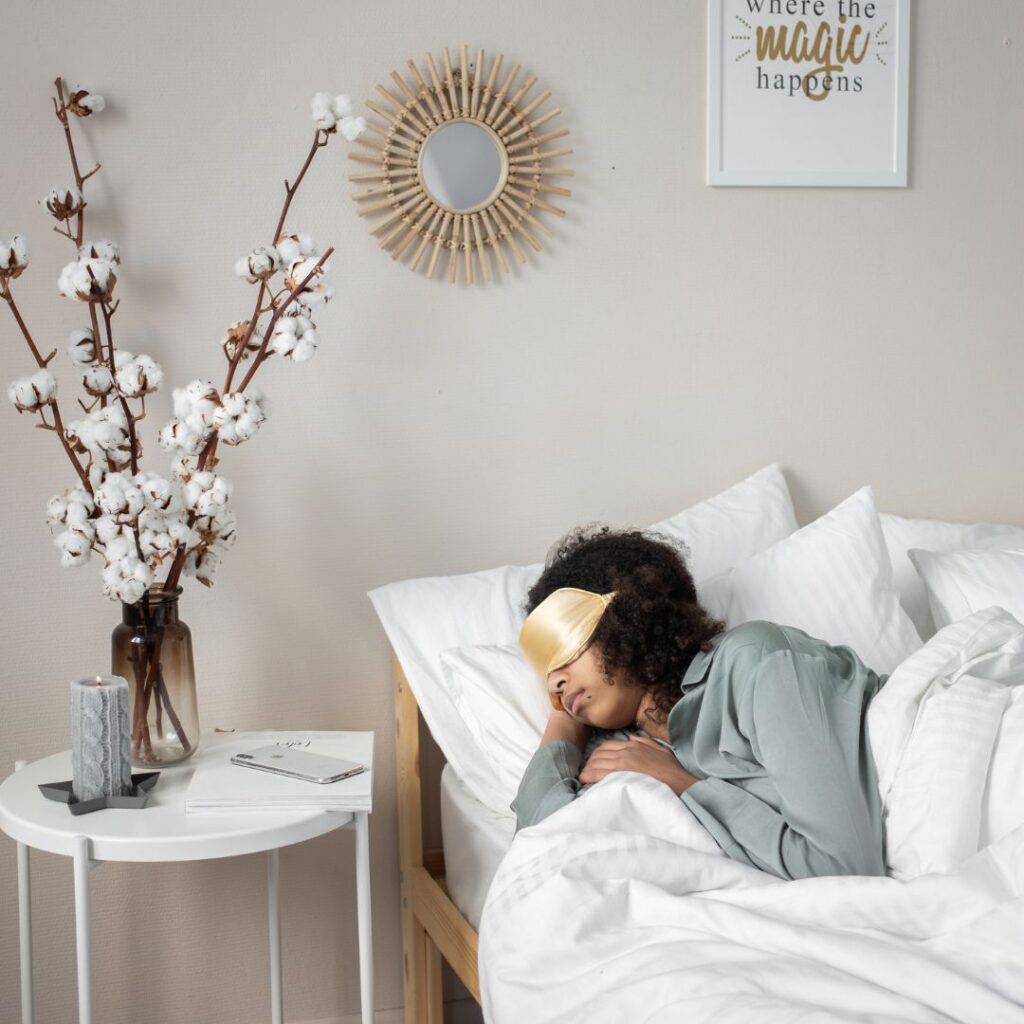How to Get a Better Night’s Sleep
May 15, 2025
(Without Giving Up Your Phone Forever)

Let’s be honest—we all want better sleep. Whether you’re waking up groggy, tossing and turning at 2 AM, or just feeling off lately, chances are your sleep could use a little love. The good news? You don’t have to completely overhaul your life to get there.
Not convinced you need more sleep? Read this post.
The National Sleep Foundation (aka the sleep pros) has put together some incredibly practical, science-backed tips to help you fall asleep faster, stay asleep longer, and wake up actually feeling rested.
So if you’re ready to level up your nights—here’s where to start:
1. Create a Relaxing Bedtime Routine
What you do before bed matters. The goal is to wind down your nervous system, not rev it up. Try setting a regular pre-sleep ritual that feels calming—like reading, journaling, stretching, or sipping a warm herbal tea. Most importantly? Do it away from bright lights and screens (yes, that includes doomscrolling TikTok).
This simple routine helps your body know it’s time to shift into sleep mode.
2. Skip Naps (If You’re Struggling at Night)
Napping can be great—unless it starts messing with your nighttime sleep. If you’re having trouble falling asleep or waking up at odd hours, try cutting out naps for a few days and see if it helps your body reset its natural rhythm.
(If you must nap, keep it under 30 minutes and before 3 PM.)
3. Move Your Body
Daily movement—especially cardio or strength training—can make a big difference in how well you sleep. The bonus? It doesn’t have to be intense. Even a walk or light yoga counts.
Just try to avoid vigorous workouts too close to bedtime. Your brain needs time to cool off before rest.
4. Make Your Bedroom a Sleep Sanctuary
Think cool, dark, quiet, and comfortable. The ideal sleep temperature is 60–67°F (16–19°C). Block out light with blackout curtains or an eye mask. Use earplugs, a fan, or a white noise machine to drown out noise.
Basically, treat your bedroom like a mini spa—designed for rest and nothing else.
5. Upgrade Your Sleep Setup
If your mattress is more than 9 or 10 years old, or your pillows are lumpy and sad, it’s time for an upgrade. A supportive, cozy bed setup is more important than you think—and can make a big difference in how you feel when you wake up.
Also: wash your sheets, clear the clutter, and ditch anything that could trip you up during a midnight bathroom run. 👀
6. Use Light Wisely
Your brain’s sleep-wake cycle (aka your circadian rhythm) is heavily influenced by light. To keep it in balance:
- Get natural sunlight early in the day
- Dim your lights in the evening
- Avoid screens at least 30–60 minutes before bed if possible (or use blue light filters)
7. Skip the Late-Night Stimulants
Alcohol, nicotine, caffeine, and heavy meals can all interfere with your ability to fall—and stay—asleep. Try to cut them off at least a few hours before bed, especially caffeine, which can linger in your system for 6+ hours.
Pro tip: If you’re craving something comforting, try a warm, non-caffeinated drink like chamomile tea or golden milk.
8. Give Yourself Time to Unwind
Your body can’t go from “high alert” to “deep sleep” in five minutes. Create space between your daily hustle and bedtime. Even 20–30 minutes of low-key activities (like reading, breathing exercises, or a warm bath) can help ease the transition.
9. Don’t Force It
Lying in bed staring at the ceiling? Don’t torture yourself. Get up, go to another room, and do something relaxing in dim lighting until you feel sleepy again.
Also—try to only use your bed for sleep and sex. This helps your brain associate your bed with rest, not stress.
10. Talk to a Pro if You’re Still Struggling
If you’ve tried all the things and sleep still feels elusive, it might be time to check in with your doctor or a sleep specialist. You could also try keeping a sleep diary to track patterns and habits—it can reveal sneaky culprits you didn’t even know were interfering.
11. Want More Support?
The National Sleep Foundation has tons of additional tools, articles, and expert insights if you want to keep learning. Consider them your go-to sleep squad.
Final Thoughts
You don’t need to be perfect to sleep better. Even small changes—like dimming the lights earlier or stretching before bed—can add up to major improvements. Give your body the tools it needs, and it’ll thank you with deeper rest, clearer focus, and more energy during the day.
Because let’s be real: life feels so much better when you’re not running on empty.